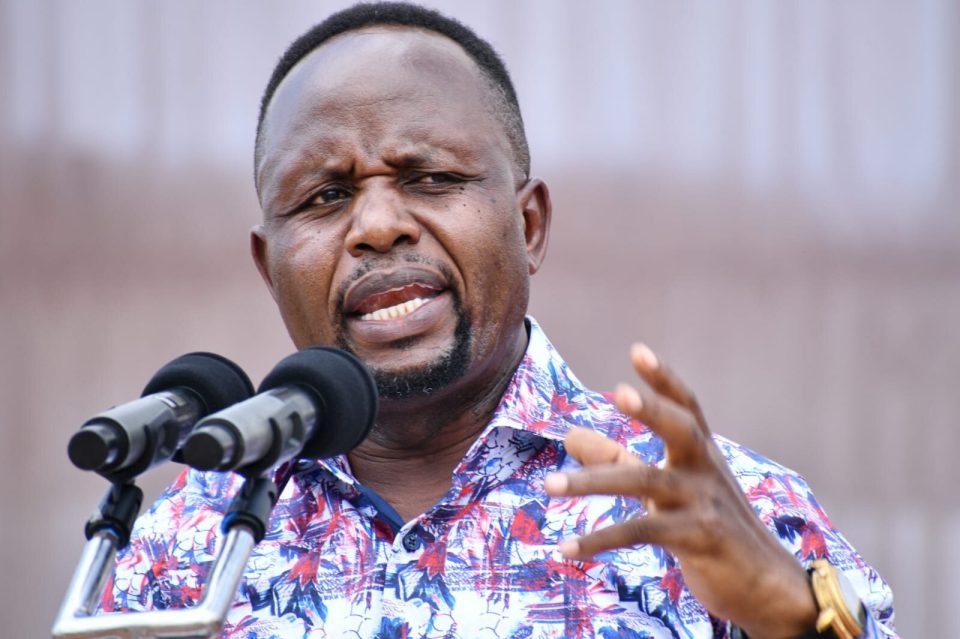By Roy Hezron
The National Parent Association (NPA) now wants the country’s teacher employer Teachers Service Commission (TSC) to be placed under the direct supervision of the Ministry of Education (MoE).
The association, under the leadership of National Chairman David Silas Obuhatsa, argues that for the last 10 years there has been a lot of conflict of power between the MoE and the TSC, which has further percolated to field officers of both organizations.
In their proposals to their Presidential Working Party on Education Reforms (PWPER), the association suggests that the TSC Act and the Constitution should be amended to transfer the powers granted to TSC as an independent commission back to the MoE for uniformity of orders and effective administration of the education sector.
“We are proposing that Article 237 of the Constitution be amended to remove the independence of TSC and be placed under the supervision of the Ministry of Education,” reads the NPA proposal in part.
At one point in 2020, the immediate former Education Cabinet Secretary Prof George Magoha, while appearing before the National Assembly’s Education Committee, told MPs he did not have control over teachers hence and asked them to re-look into the law that does not empower his office to be in charge.
It emerged that the lack of powers to hold head teachers to account for financial impropriety does not rest easy with top officials in the MoE.
After the promulgation of the 2010 Constitution, TSC became an independent commission with sole powers to manage all trained teachers in the country.
The association now proposes that the functions of the quality assurance on curriculum delivery should be exercised by the Ministry of Education (MoE) in order to avoid duplication of functions.
Further, the association suggests that a national council of policy formulation and implementation, which the NPA should be a member, should be created in the Basic Education Act in order to streamline and harmonize various educational policies that are issued by different organizations.
Where rivalry started
The rivalry between MOE and TSC started in 2012 when the then TSC Secretary and Chief Executive Officer (CEO) Gabriel Lengoiboni revoked the MoE’s powers that enabled the then Provincial Directors of Education (PDEs) and District Education Officers (DEOs), who were then under the ministry, to manage teachers.
The TSC revoked the MoE in regard to the teacher management functions as per the TSC Act (Cap 212) and legal Notice No.95 of 171, which meant that TSC had stripped all the PDEs and DEOs of their powers to manage teachers’ affairs in a radical move to entrench itself as a constitutional commission.
The TSC then created County Directors of Education (CDE) structures that effectively replaced the old order, rendering the once powerful ministry staff irrelevant.
And even as the ministry also established its own county structures in line with Constitutional provisions, the bad blood between TSC and ministry kicked in.
Charging of illegal fees
The proposals decry overcharging parents and attaching unexplained levies on them.
“The Constitution of Kenya, Article 53, declares free basic education. The same was operationalized by the Basic Education Act, 2013, but despite coming up with very clear declarations, majority of our schools have continued to overcharge and slap extra levies on parents,” said the association.
It also proposes that the Basic Education Act be amended to make it a criminal offence for any person to turn away children for more than 14 days, and further be amended to criminalize forced repetition of classes.
Side-Bar:
Other major proposals at a glance
- All ECDE centres be made autonomous by de-linking them from the management and supervision of primary schools.
- Make it easier to replace lost certificates and change names.
- The KNEC Act be amended to allow learners access to their marked examination papers once the results are released.
- The KNEC Act be amended to create National Examinations Appeals Board (NEAB).
- The KNEC Act be amended to allow candidates who fail national examination to sit supplementary examinations.
- The KNEC Act and the regulations be amended to allow candidates who commit offences to be suspended for a period not exceeding six months, and thereafter allowed to re-sit the examination.
- KICD to be preparing the curriculum and scheme of work for all teachers.
- The government to create a vote head under the FPE capitation grand to cater for the training of parents’ representatives on the implementation of CBC.
- Allocation of funds to the NPA.
- The government to purchase at least three 65-inch TV sets for every primary and secondary school.
- The current radio programmes be upgraded to virtual learning.
- De-boarding whereby all boarding facilities in schools should be left to be managed by a private entity.
- Making school fund accounting compulsory before the release of another installment.






